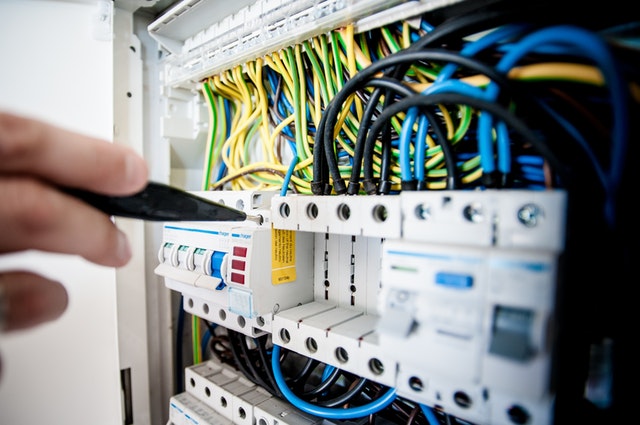4 First Things You Should Do After You Move In
 Congratulations on moving into your new house! But hold on. Now that the house is yours, there are a few things you will want to do in order to make life in your new home more comfortable and secure. Before you plan your housewarming party, here is a list of the first things you should do after you move in.
Congratulations on moving into your new house! But hold on. Now that the house is yours, there are a few things you will want to do in order to make life in your new home more comfortable and secure. Before you plan your housewarming party, here is a list of the first things you should do after you move in.
1. Change The Locks
As the new homeowner, you have no way of knowing how many others have keys to your new home. The previous owner may have made copies for their housekeeper, their parents, the babysitter, a neighbor, or anyone else. You definitely don’t want anyone else having keys to your home. Have a locksmith come in and change all the locks. The investment will help you sleep soundly.
2. Find Out Your Boundaries
Check in with town hall to see if there are documents on file that lay out the boundaries for the land you just purchased. If not, consider having a land surveyor come out to mark the boundaries around your new home. This will ensure that you don’t accidentally do things that encroach on your new neighbor’s land, such as planting trees or flowers, erecting a fence, or setting up a swing set.
3. Introduce Yourself To The Neighbors
Pencil in a day to go around and meet your new neighbors. Don not wait too long to do this; the longer you wait, the more awkward it becomes. In theory, they should be introducing themselves to you, but these days you could be waiting a long time for an apple pie to show up at your door. Just wait for the weekend and give a light knock on the doors on your street. Your neighbors will appreciate the gesture and you might just meet a new friend.
4. Make A House Map
A house map is just a general layout of where all the important fixtures are. The map should include the furnace, all outdoor spigots, the main water shut-off valve, the septic tank lid cover (if applicable) and the circuit box. Finally, invest in some fire extinguishers and mark their locations on the map, too. Have it laminated and put it someplace where all the family members can access it.
Once you take care of these four things, you willll feel better knowing that you’ve done all the necessary chores. Now, just sit back and enjoy your accomplishment!

 Homeowners who are struggling to make their monthly mortgage payments can make it easier on themselves by cutting costs in other areas. Learning how to budget effectively will likely enable homeowners to pay their mortgage payments on-time, every time. Here are five of the best budget tips:
Homeowners who are struggling to make their monthly mortgage payments can make it easier on themselves by cutting costs in other areas. Learning how to budget effectively will likely enable homeowners to pay their mortgage payments on-time, every time. Here are five of the best budget tips: When you buy a new house, the first thing you want to do is protect your investment. You already have property insurance. Should you also buy a home warranty?
When you buy a new house, the first thing you want to do is protect your investment. You already have property insurance. Should you also buy a home warranty? The vast majority of people who are interested in buying a home are not going to be able to pay cash for the home. Even for those who can buy a home in cash, they often would rather take out a loan to avoid pulling money out of their investments where they would have to pay capital gains taxes.
The vast majority of people who are interested in buying a home are not going to be able to pay cash for the home. Even for those who can buy a home in cash, they often would rather take out a loan to avoid pulling money out of their investments where they would have to pay capital gains taxes. When you are a first-time homeowner, learning about your property can feel overwhelming. There are a number of systems in your home that require routine maintenance. Knowing when to have system serviced will help keep your home running smoothly. From the plumbing in your home, to the heating and cooling, understand that each system may need routine maintenance from time to time.
When you are a first-time homeowner, learning about your property can feel overwhelming. There are a number of systems in your home that require routine maintenance. Knowing when to have system serviced will help keep your home running smoothly. From the plumbing in your home, to the heating and cooling, understand that each system may need routine maintenance from time to time.